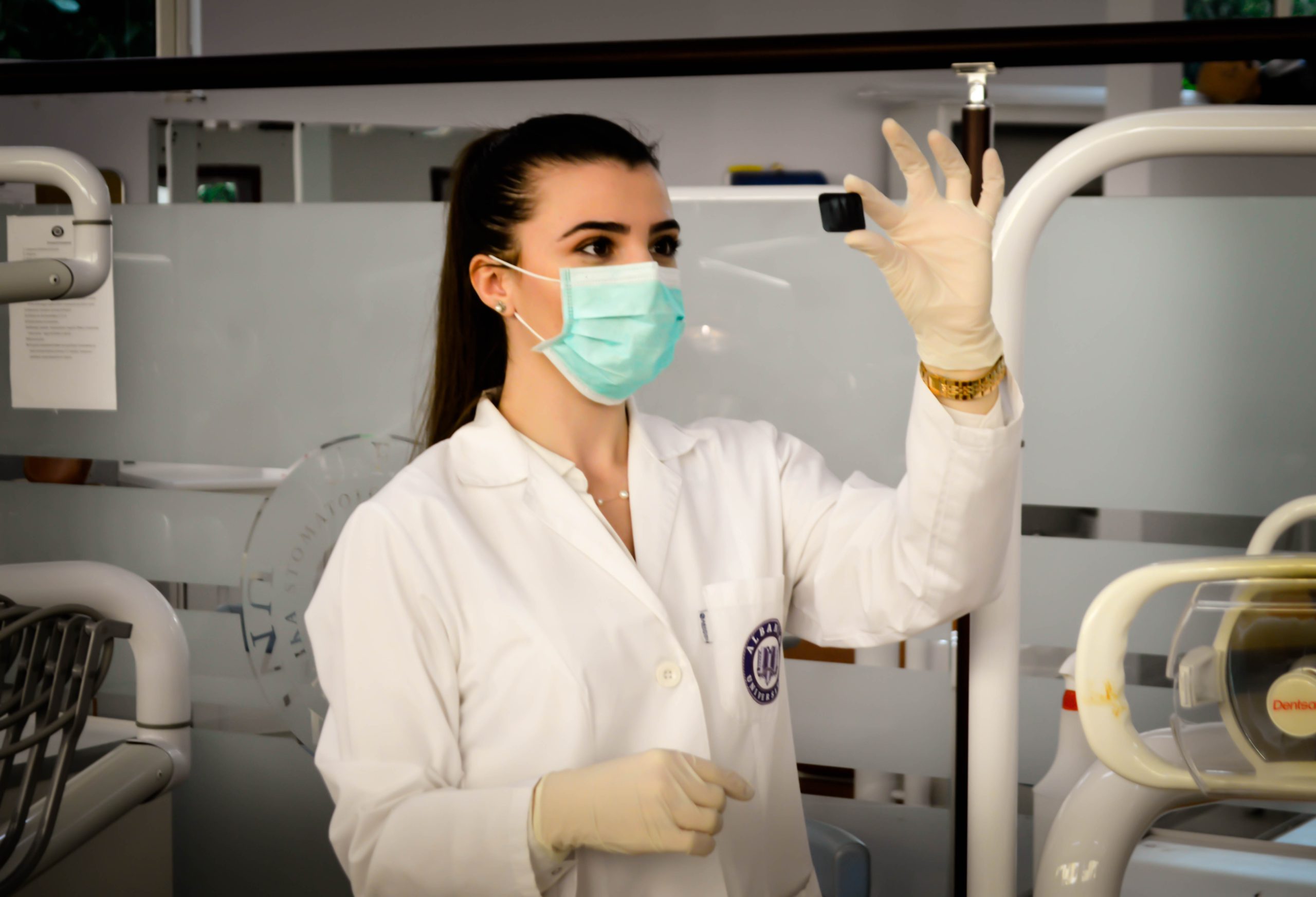Looking to boost your gut health? Curious about the best way to increase butyrate in your gut? Butyric acid, also known as butyrate, is a short-chain fatty acid that plays a vital role in supporting digestive health and overall well-being. Produced naturally in the body through the fermentation of dietary fibers by gut bacteria, butyric acid acts as an energy source for the cells lining the colon and is believed to have anti-inflammatory properties. In recent years, it has garnered attention as a dietary supplement. If you’re considering incorporating butyric acid into your regimen, it’s important to consult with a healthcare professional to find the best approach for your individual needs.

Dietary Changes
Increase Fiber Intake
One of the best ways to increase butyrate in the gut is by increasing your fiber intake. Butyric acid is naturally produced by gut bacteria during the fermentation of dietary fibers. By consuming more fiber-rich foods, such as fruits, vegetables, whole grains, legumes, and nuts, you can provide the necessary substrate for the production of butyrate in the gut. Aim to include a variety of fiber sources in your diet to promote a diverse gut microbiota and ensure a steady supply of butyrate.
Consume Resistant Starch
Resistant starch is another type of dietary fiber that can promote the production of butyrate in the gut. This type of starch resists digestion in the small intestine and reaches the colon, where it becomes a source of fuel for the gut bacteria. Foods high in resistant starch include green bananas, cooked and cooled potatoes, legumes, and whole grains. Including these foods in your diet can increase butyrate levels and support gut health.
Include Fermented Foods
Fermented foods are rich in beneficial bacteria, known as probiotics, which can help increase the production of butyrate in the gut. Consuming foods like yogurt, kefir, sauerkraut, kimchi, and kombucha can introduce these beneficial bacteria into your gut, thereby enhancing the fermentation process and promoting butyrate production. Including a variety of fermented foods in your diet can help maintain a healthy balance of gut bacteria and optimize butyrate levels.
Probiotics and Prebiotics
Introduce Beneficial Bacteria
Probiotics are live microorganisms that provide health benefits when consumed. By introducing these beneficial bacteria into your gut, you can enhance the production of butyrate. Probiotics can be found in certain foods, such as yogurt and fermented vegetables, as well as in supplement form. Look for probiotic strains, such as Lactobacillus and Bifidobacterium, which have been shown to increase butyrate production. Incorporating probiotics into your daily routine can support gut health and promote optimal butyrate levels.
Consume Prebiotic Foods
Prebiotics are a type of dietary fiber that serve as fuel for the beneficial bacteria in your gut. By consuming prebiotic foods, such as onions, garlic, asparagus, bananas, and oats, you can help nourish the gut bacteria responsible for butyrate production. These foods contain indigestible fibers that pass through the small intestine and reach the colon, where they are fermented by the gut bacteria to produce butyrate. Including prebiotic-rich foods in your diet can support the growth of beneficial bacteria and enhance butyrate production.
Consider Probiotic Supplements
In addition to consuming probiotic-rich foods, you may also consider incorporating probiotic supplements into your routine to increase butyrate in the gut. Probiotic supplements often contain a combination of different strains of beneficial bacteria, such as Lactobacillus and Bifidobacterium, which can help support gut health and enhance butyrate production. When choosing a probiotic supplement, look for one that contains a high number of live organisms and has been shown to survive the digestive process and reach the colon intact.
Exercise
Regular Physical Activity
Engaging in regular physical activity is not only beneficial for your overall health but can also impact gut function and butyrate production. Exercise helps to increase blood flow to the gut, providing oxygen and nutrients to the cells lining the colon, which rely on butyrate as a primary energy source. Aim for at least 30 minutes of moderate-intensity exercise most days of the week to support gut health and promote optimal butyrate levels.
Aerobic Exercise
Aerobic exercise, such as running, cycling, or swimming, has been shown to have a positive effect on gut health and butyrate levels. This type of exercise increases the oxygen supply to the gut, creating an environment that is conducive to the production of butyrate by the gut bacteria. Incorporating aerobic exercise into your routine can help support a healthy gut and optimize butyrate production. Start with shorter sessions and gradually increase the duration and intensity as tolerated.
Resistance Training
In addition to aerobic exercise, resistance training, or strength training, can also have a beneficial effect on gut health and butyrate production. Resistance training involves the use of resistance, such as weights or resistance bands, to build strength and muscular endurance. This type of exercise has been shown to improve gut barrier function and increase butyrate levels. Including resistance training exercises, such as weightlifting or bodyweight exercises, in your fitness routine can support gut health and enhance butyrate production.
Reducing Stress
Manage Stress Levels
Stress can have a negative impact on gut health and butyrate production. High levels of stress can disrupt the balance of gut bacteria and impair the fermentation process, leading to decreased butyrate production. It’s important to manage your stress levels through techniques such as regular exercise, relaxation techniques, and seeking support from friends and family. By reducing stress, you can create a favorable environment for butyrate production and promote a healthier gut.
Practice Relaxation Techniques
Incorporating relaxation techniques into your daily routine can help reduce stress and support gut health. Techniques such as deep breathing, meditation, and yoga have been shown to activate the body’s relaxation response, reducing the production of stress hormones and promoting a sense of calm. By regularly practicing relaxation techniques, you can support a healthy gut and optimize butyrate levels.
Consider Mindfulness or Meditation
Mindfulness and meditation practices can be beneficial for gut health and butyrate production. These practices involve focusing your attention on the present moment and accepting it without judgment. Mindfulness-based stress reduction programs and meditation practices have been shown to improve gut function, enhance butyrate production, and reduce symptoms of digestive disorders. Consider incorporating mindfulness or meditation into your daily routine to support gut health and promote optimal butyrate levels.

Intermittent Fasting
Implement Time-Restricted Eating
Implementing a time-restricted eating approach, such as fasting for a specific window of time each day, can have a positive impact on gut health and butyrate production. By limiting your eating window to a specific number of hours, typically between 8-12 hours, you give your gut a chance to rest and recover. This fasting period can promote the growth of beneficial bacteria and enhance butyrate production. Start by gradually increasing the fasting window and monitor how your body responds.
Try Alternate-Day Fasting
Alternate-day fasting involves alternating between periods of reduced calorie intake and periods of normal eating. This fasting approach has been shown to impact gut microbiota composition and enhance butyrate production. On fasting days, you consume a significantly reduced number of calories, which has been found to increase the abundance of butyrate-producing bacteria. Incorporating alternate-day fasting into your routine may help increase butyrate levels and support gut health.
Consider Periodic Fasting
Periodic fasting, also known as extended fasting or prolonged fasting, involves abstaining from food for an extended period of time, typically 24-48 hours or longer. This fasting approach has been shown to have a profound effect on gut health and butyrate production. During a fasting period, the gut has the opportunity to repair and regenerate, leading to increased butyrate production when food is reintroduced. It’s important to consult with a healthcare professional before attempting periodic fasting to ensure it is safe and appropriate for you.
Avoiding Artificial Sweeteners and Additives
Limit Consumption of Artificial Sweeteners
Artificial sweeteners, such as aspartame, sucralose, and saccharin, are commonly found in diet sodas, sugar-free products, and low-calorie foods. While these sweeteners may provide a sugar-free alternative, they can have a negative impact on gut health and butyrate production. Research suggests that artificial sweeteners can disrupt the balance of gut bacteria, leading to decreased butyrate levels. To support gut health and butyrate production, it’s best to limit your consumption of artificial sweeteners and opt for natural sweeteners in moderation.
Avoid Food Additives
Food additives, such as preservatives, artificial colors, and flavor enhancers, can also have a detrimental effect on gut health and butyrate production. These additives are often present in processed and packaged foods, which are typically low in fiber and high in unhealthy fats. By avoiding foods that contain these additives and opting for whole, unprocessed foods instead, you can support a healthy gut and promote optimal butyrate levels. Read food labels carefully and choose products with minimal additives.
Choose Natural and Whole Foods
To maximize butyrate production and support gut health, it’s important to prioritize natural and whole foods in your diet. These foods, such as fruits, vegetables, whole grains, lean proteins, and healthy fats, provide essential nutrients and fiber that are necessary for the growth and activity of beneficial gut bacteria. By choosing natural and whole foods, you can create an environment in your gut that is conducive to butyrate production and overall digestive health.

Supplementing with Butyrate
Consult with a Healthcare Professional
If you’re considering supplementing with butyrate, it’s important to consult with a healthcare professional before starting any new supplement regimen. They can assess your individual needs, evaluate your current health status, and provide guidance on the appropriate dosage and form of butyrate supplementation. A healthcare professional can also help determine if supplementing with butyrate is necessary or if other dietary and lifestyle changes may be sufficient to support gut health and optimize butyrate levels.
Determine Optimal Dosage
The optimal dosage of butyrate supplementation can vary depending on individual factors, such as gut health, age, and underlying medical conditions. Working with a healthcare professional can help you determine the appropriate dosage of butyrate for your specific needs. It’s important to start with a lower dosage and gradually increase as tolerated to minimize the risk of side effects.
Choose the Right Formulation
Butyrate supplements are available in various forms, including capsules, powders, and liquid preparations. The choice of formulation may depend on personal preference, ease of use, and absorption. Some individuals may prefer capsules for convenience, while others may find powders or liquid preparations more suitable. It’s important to choose a high-quality supplement from a reputable manufacturer to ensure the purity and potency of the product. A healthcare professional can provide guidance on selecting the right formulation of butyrate supplementation.
Managing Digestive Disorders
Identify and Treat Underlying Conditions
If you are experiencing digestive disorders, such as irritable bowel syndrome (IBS) or inflammatory bowel disease (IBD), it’s crucial to identify and treat any underlying conditions. These conditions can have a significant impact on gut health and butyrate production. Working with a healthcare professional, such as a gastroenterologist, can help you determine the root cause of your symptoms and develop a treatment plan tailored to your needs. Treating underlying conditions can help restore gut health and optimize butyrate levels.
Follow a Gut-Healthy Diet
In addition to treating underlying conditions, following a gut-healthy diet can play a crucial role in managing digestive disorders and promoting butyrate production. A gut-healthy diet emphasizes whole, unprocessed foods, high in fiber, and low in added sugars and unhealthy fats. It may also involve the elimination or modification of certain foods that trigger symptoms. Working with a registered dietitian who specializes in gut health can help you develop a personalized meal plan that supports your digestive health and enhances butyrate production.
Consider Medical Intervention
In some cases, medical intervention may be necessary to manage digestive disorders and optimize butyrate levels. This may include the use of medications, such as anti-inflammatory drugs or antibiotics, to reduce inflammation and restore gut balance. In severe cases, surgical intervention may be required. It’s important to work closely with a healthcare professional to determine the most appropriate course of treatment for your specific condition and symptoms.
Supporting Gut Health
Maintain a Balanced Diet
Maintaining a balanced diet is crucial for supporting gut health and optimizing butyrate levels. A balanced diet should include a variety of nutrient-rich foods, such as fruits, vegetables, whole grains, lean proteins, and healthy fats. These foods provide the necessary nutrients and fiber to support the growth and activity of beneficial gut bacteria. Aim to consume a diverse range of foods to promote a diverse gut microbiota and ensure optimal butyrate production.
Stay Hydrated
Hydration is an important factor in supporting gut health and butyrate production. Drinking an adequate amount of water helps to optimize digestion and maintain regular bowel movements, which is essential for the proper fermentation of dietary fibers by gut bacteria. Aim to drink at least 8 cups of water per day and adjust your intake based on individual needs and activity level. Staying hydrated can support a healthy gut environment and enhance butyrate production.
Manage Medications Properly
Certain medications, such as antibiotics, proton pump inhibitors (PPIs), and nonsteroidal anti-inflammatory drugs (NSAIDs), can have a negative impact on gut health and butyrate production. These medications can disrupt the balance of gut bacteria and impair the fermentation process. If you’re taking any medications, it’s important to manage them properly and follow the instructions provided by your healthcare professional. If possible, explore alternative treatment options or discuss potential gut health side effects with your healthcare provider.
Monitoring and Tracking Progress
Keep a Food and Symptom Journal
Keeping a food and symptom journal can be a helpful tool in monitoring and tracking your progress towards optimizing butyrate levels and supporting gut health. Record your daily food intake, including specific foods and portion sizes, as well as any digestive symptoms or changes in bowel habits. This journal can help identify patterns between your diet and symptoms, allowing you to make more informed dietary choices and assess the effectiveness of your interventions.
Track Butyrate Levels
If you’re particularly interested in monitoring your butyrate levels, you may consider working with a healthcare professional to track your levels through laboratory testing. This can provide valuable information about your current butyrate status and help guide dietary and lifestyle interventions. Your healthcare professional can help you interpret the test results and make any necessary adjustments to your plan.
Monitor Gut Health Markers
In addition to tracking butyrate levels, monitoring other gut health markers can provide a comprehensive picture of your digestive health. This may involve testing for markers such as gut inflammation, gut barrier function, and gut microbiota composition. Working with a healthcare professional who specializes in gut health can help you select the appropriate tests and interpret the results. By monitoring gut health markers, you can assess the effectiveness of your interventions and make any necessary adjustments to support optimal butyrate production and overall gut health.
In conclusion, there are several lifestyle and dietary strategies that can help increase butyrate in the gut and support optimal gut health. By incorporating these strategies into your daily routine and working with a healthcare professional, you can enhance butyrate production, promote a healthy gut environment, and maximize your overall well-being. Remember to consult with a healthcare professional before making any significant changes to your diet or starting any new supplement regimens, especially if you have pre-existing health conditions or are taking other medications. With the right approach, you can optimize your butyrate levels and enjoy the numerous benefits of a healthy gut.







